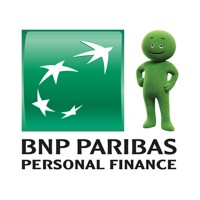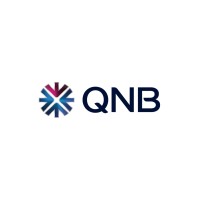Company Cyber Security Posture
NANA
NA Company Details
NA
NA
NA
NA
NA
NA
Scan still pending
NA
NA
Between 200 and 800
This score is AI-generated and less favored by cyber insurers, who prefer the TPRM score.
 NA Global Score
NA Global Score.png)

Company Scoring based on AI Models
| Model Name | Date | Description | Current Score Difference | Score |
|---|---|---|---|---|
| AVERAGE-Industry | 03-12-2025 | This score represents the average cybersecurity rating of companies already scanned within the same industry. It provides a benchmark to compare an individual company's security posture against its industry peers. | N/A | Between 200 and 800 |
Company Cyber Security News & History
| Entity | Type | Severity | Impact | Seen | Url ID | Details | View |
|---|
Company Subsidiaries

NA
Access Data Using Our API

Get company history
.png)
NA Cyber Security News
‘Cybersecurity with Chinese Characteristics’: Digital governance in the Indo-Pacific
ARTICLE 19's new report reveals how China is expanding its digital authoritarian model of cybersecurity governance across the Indo-Pacific, posing a grave ...
AI Watch: Global regulatory tracker - China
The Interim AI Measures is China's first specific, administrative regulation on the management of generative AI services.
Central Bank Governor Signs Cooperation Agreement with Chinese Counterpart
the two central banks will support each other in important areas such as green finance, digital central bank money, artificial intelligence and digitization, ...
China to start re-capitalizing banks with $55 billion, Bloomberg News reports
China plans to inject at least 400 billion yuan ($55.13 billion) into its biggest banks in coming months as part of a broader stimulus ...
China Issued Draft Administrative Measures for Reporting of Cybersecurity Incidents in Financial Business Operation
Large level incidents: For incidents classified as “large level” or above, covered financial institutions would need to submit a brief report ...
London calling to the Chinese renminbi
Through the deal between ABC and Standard Chartered, financial institutions and corporates will be able to execute RMB transactions in London. That could be ...
Top Chinese banks' profits stagnate, margins shrink as economy weighs
The nation's third largest bank by assets, posted flat annual profits and lower margins on Friday, as a slowing economy and a struggling property sector weigh ...
Commercial Banking Market Review 2018-2023 & Forecast to
Dublin, Oct. 25, 2024 (GLOBE NEWSWIRE) -- The "Commercial Banking Market Report 2024" report has been added to ResearchAndMarkets.com's ...
Hunters International cyber-gang extorts Chinese mega-bank's London HQ
Ransomware gang Hunters International reportedly claims to have stolen more than 5.2 million files belonging to the London branch of the ...

NA Similar Companies

Commerzbank AG
Commerzbank is the leading bank for the German Mittelstand and a strong partner for around 25,500 corporate client groups. In addition, it supports private and small-business customers in Germany with more than €400 billion assets under management. The Bank’s two Business Segments – Private and Smal

ING Nederland
ING With 9 million account holders, ING is one of the largest and most prominent financial service providers in the Netherlands. We are part of ING Group, a global financial institution. ING Group has clients in more than 40 countries in Europe, North America, Latin America, Asia and Australia. Am

BNP Paribas Personal Finance
BNP Paribas Personal Finance is 100% BNP Paribas group subsidiary and the European leader in personal finance. With a presence in 33 countries, our customers, partners and employees write our company’s story as they share our philosophy: promote access to a more responsible and sustainable consumpti

The People's Bank of China
The People's Bank of China (PBC) was established on December 1, 1948 based on the consolidation of the Huabei Bank, the Beihai Bank and the Xibei Farmer Bank. In September 1983, the State Council decided to have the PBC function as a central bank. The Law of the People's Republic of China on the Peo

QNB Türkiye
Finansbank A.Ş. 26 Ekim 1987 tarihinde iş insanı Hüsnü Özyeğin liderliğinde 100 ortakla Bankalar Kanunu ve Türk Ticaret Kanunu hükümleri uyarınca kuruldu. Sektörde hızlı büyeme ile ilk 5 büyük özel banka arasına giren QNB Finansbank, 2006 yılında Yunanistan'ın en büyük bankası National Bank of Greec

Banco Bci
Porque el mundo que nos rodea se actualiza constantemente, porque tu decides hacer tu vida más simple: para entretenerte, para compartir con tu familia o para moverte por la ciudad. En Bci evolucionamos junto a ti, en este mundo donde todo se transforma una y otra vez, con soluciones que harán tu vi

Frequently Asked Questions
Explore insights on cybersecurity incidents, risk posture, and Rankiteo's assessments.
NA CyberSecurity History Information
How many cyber incidents has NA faced?
Total Incidents: According to Rankiteo, NA has faced 0 incidents in the past.
What types of cybersecurity incidents have occurred at NA?
Incident Types: The types of cybersecurity incidents that have occurred include .
Additional Questions
What Do We Measure?
















Every week, Rankiteo analyzes billions of signals to give organizations a sharper, faster view of emerging risks. With deeper, more actionable intelligence at their fingertips, security teams can outpace threat actors, respond instantly to Zero-Day attacks, and dramatically shrink their risk exposure window.
These are some of the factors we use to calculate the overall score:
Identify exposed access points, detect misconfigured SSL certificates, and uncover vulnerabilities across the network infrastructure.
Gain visibility into the software components used within an organization to detect vulnerabilities, manage risk, and ensure supply chain security.
Monitor and manage all IT assets and their configurations to ensure accurate, real-time visibility across the company's technology environment.
Leverage real-time insights on active threats, malware campaigns, and emerging vulnerabilities to proactively defend against evolving cyberattacks.




